- Delivery to UK & Ireland
- Ethical & Sustainable Meat Boxes
- Slow Food Award Winners
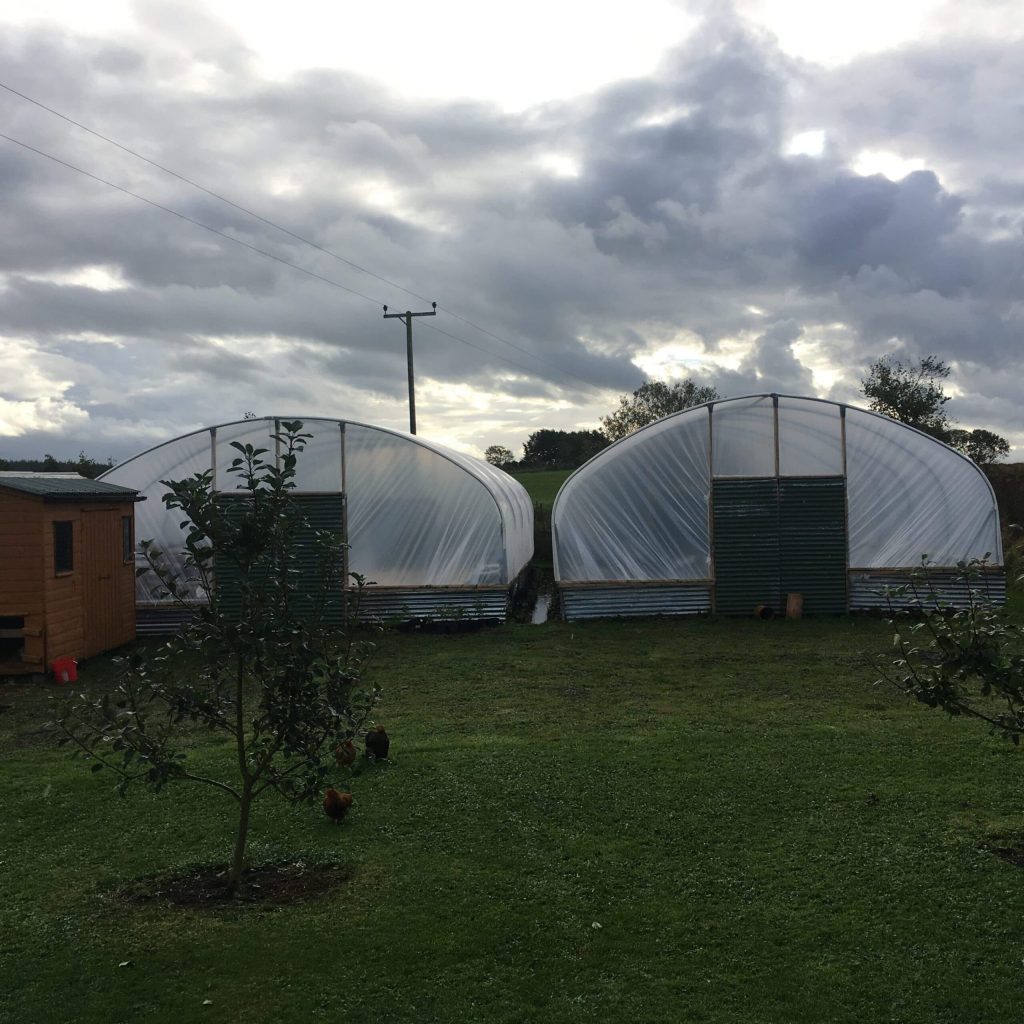
Well, welcome to our new years resolution! We felt that we should be better at informing you all what we’ve got going on up the farm!
So here’s our start! We usually take a break from the Markets for the first few weeks of January, when the markets are slightly slower- but its no holiday! We use this break to re-group from the mad pre-christmas rush. It allows us to carry out all sorts of maintenance work from the food side of the business, our equivilant of a spring clean, annual maintenance to the butchery, and all the other little jobs that we don’t have time for in the thick of it!
We’re also always still flat out on the farm, particularly as January is the start of kidding on the dairy farms, so we’re usually pretty busy getting pens ready, milk feeders cleaned and sanitised and other general prep to get ready for the kids (but we’ll get into this more in februarys post, when were in the thick of it!)
This January our spare time has been spent getting our polytunnels ready! We have always done a fair bit from our veg plot, and last year we experimented with supplying the burger trailer. Well this year just got bigger and better! At the end of last summer we re-erected the old goat polytunnels at the end of the orchard to maximize our own veg-production! As you can see below we have two large tunnels side by side, we’ve skirted the lower two foot with tin, in the hope that this will prevent any mishaps with tools going through the plastic, but also allows us to add tension to the plastic should we need to in the future.
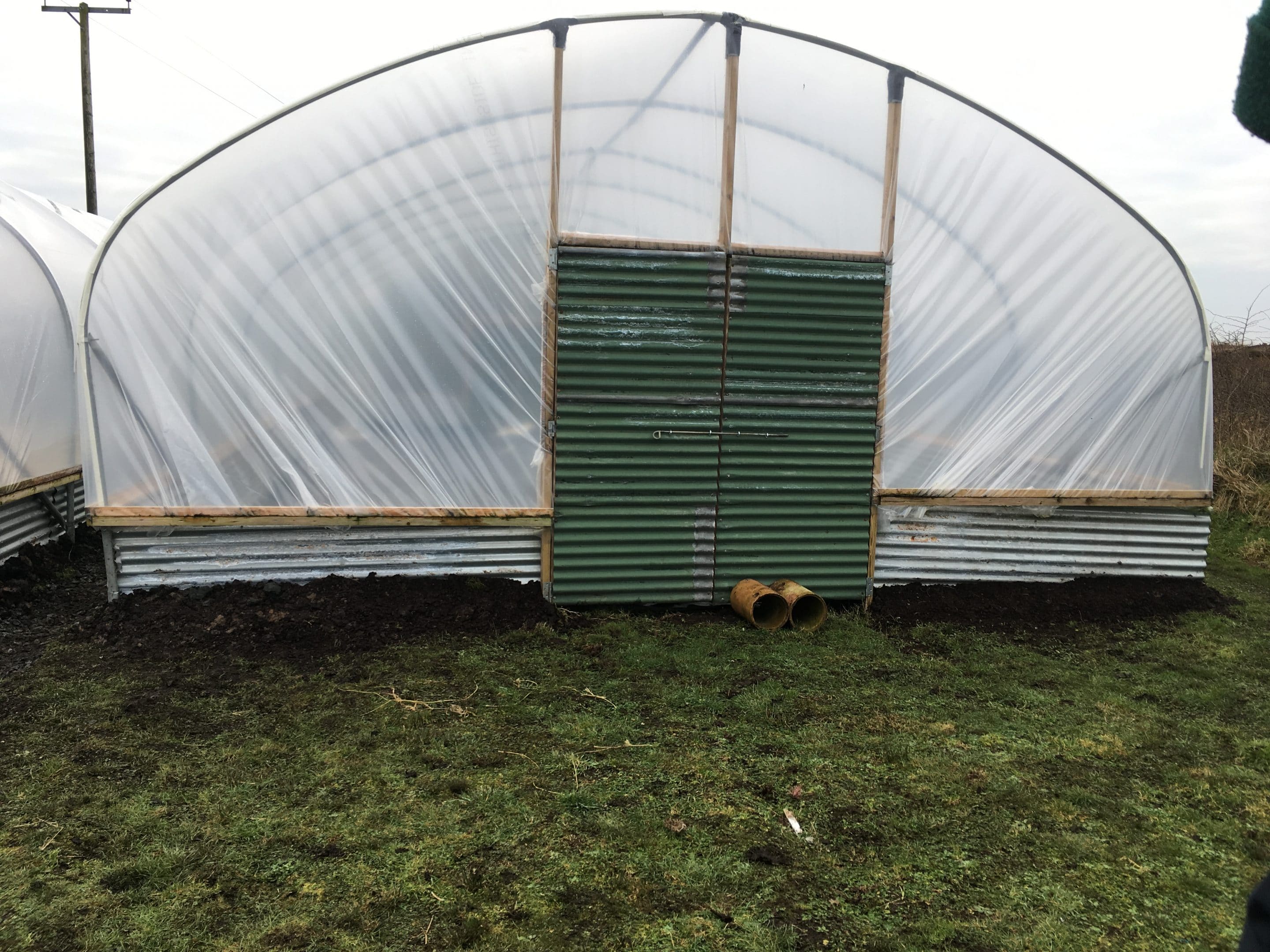
Since erecting them we’ve done very little, other than covering the ground in black polythene! The plan here is to kill off any weeds that are currently growing, and as you can see below, very effective! And much more sustainable than weed killer! We’re trying this year a ‘no-dig’ approach to the garden, in the hope that it will avoid a lot of the backbreaking digging, as well as fitting in with our hectic life at markets, requiring a less-intensive approach to its upkeep.
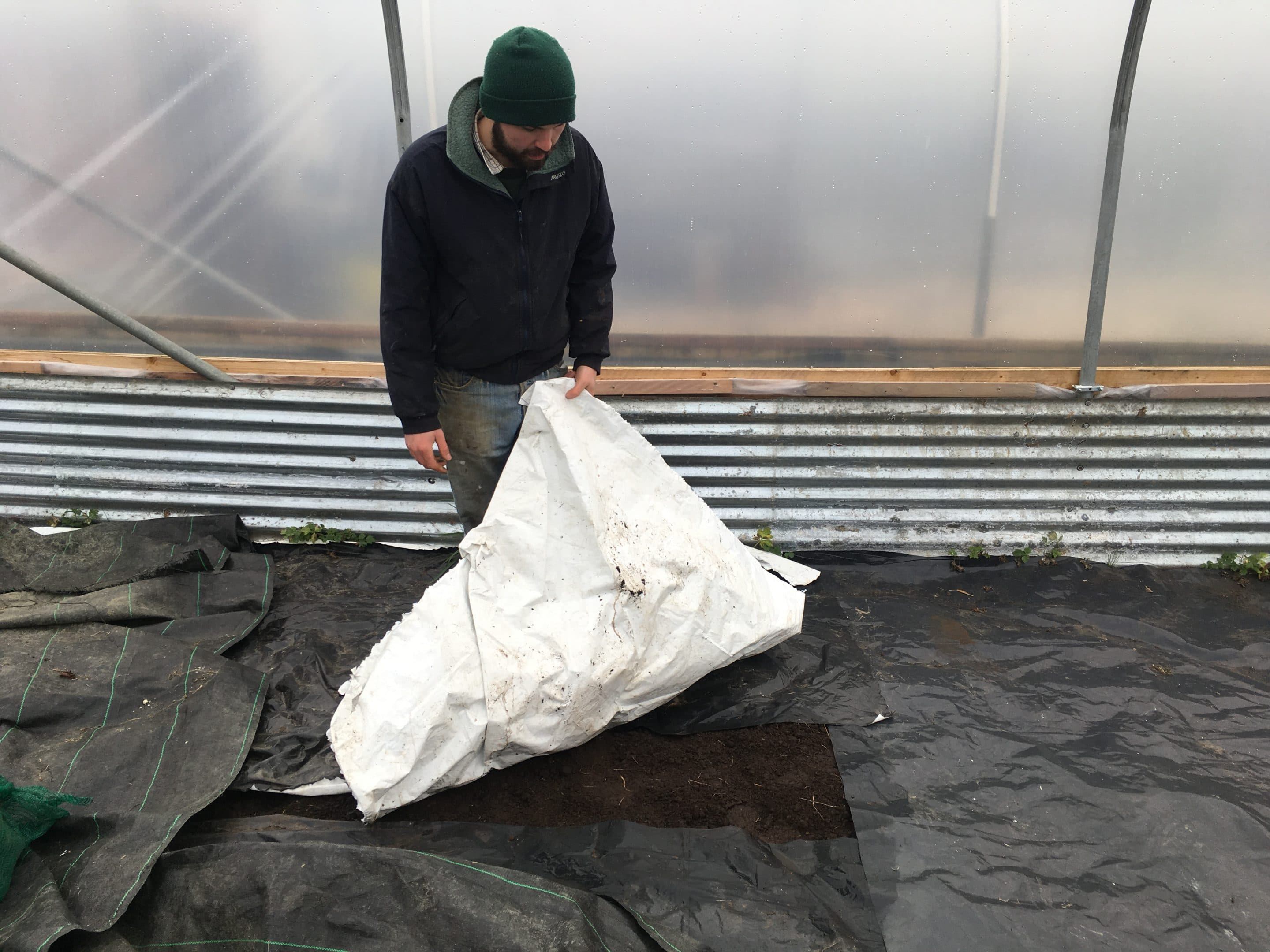
We were slightly worried over the winter that the inside of the polytunnels were quite damp! As they’re at the lower end of the orchard they were trapping a lot of surface run-off, and any rain hitting the canopy was coming back in under the tin. Having chatted to Stephen from McNally’s Family Farm (Growers of Seasonal Organic Vegetables and Salads), at our regular ‘Farm Saturday’ catch up at Temple Bar Market in Dublin, we decided that a trench between the two would be the best solution, as this what they did with theirs. Whilst digging the trench we actually unearthed four traditional stone built drains, which passed across the two tunnels, Linking in with these will hopefully now drain the wetter patches out of the tunnel. We also tied the drain across to the overflow from the barrels that collect rainwater off the roof of the bantams house for use in the tunnels. And here’s a photo of McNally’s Gap between the two tunnels, now filled with clean drainage stone.
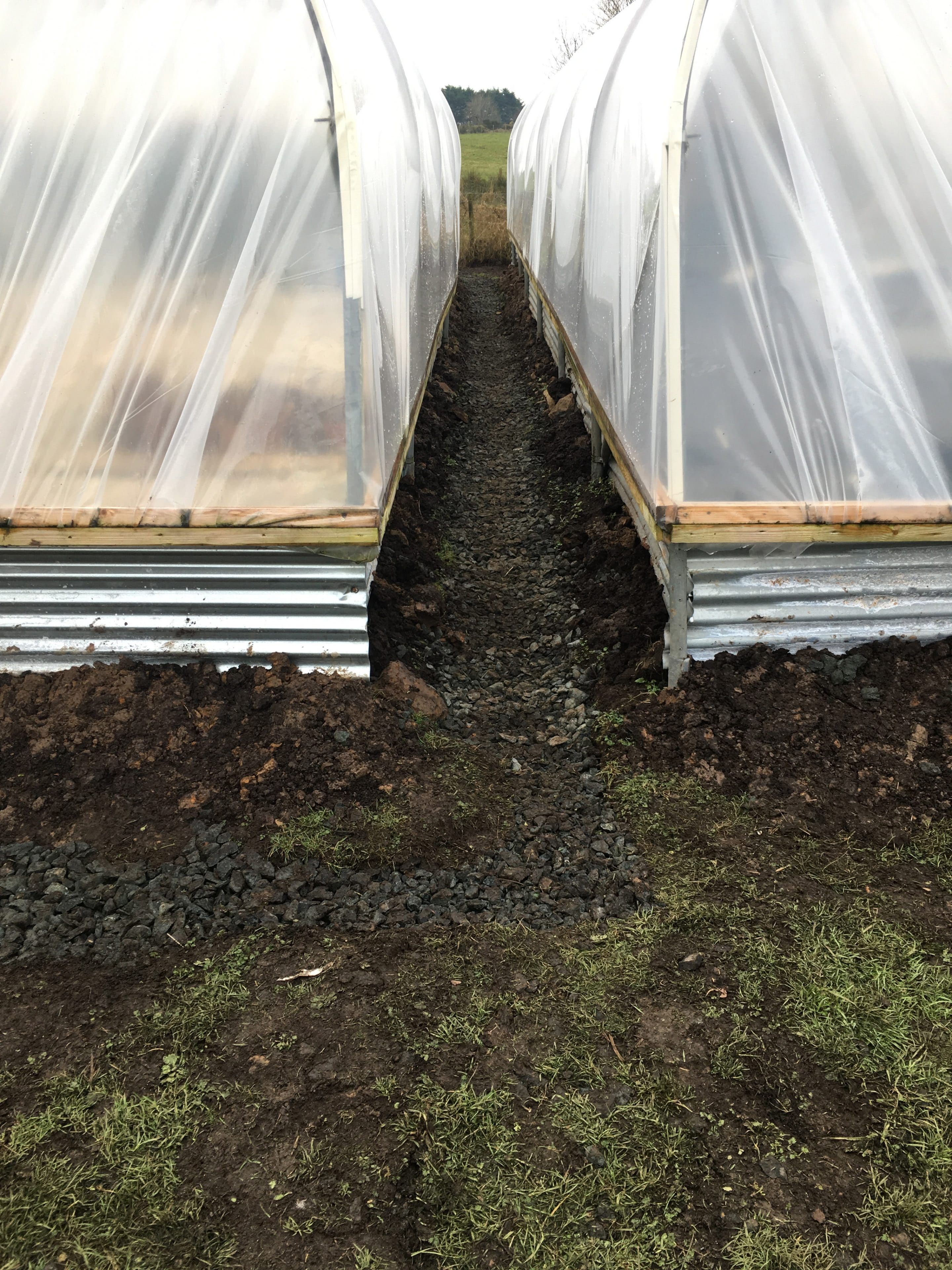
We’ve lifted some of the plastic in one half of the polytunnel, ready to manure (for our future crop of tomatoes) as you can see below, this unearths a number of perennial weeds struggling to breakthrough the plastic. They are much weakened by the plastic, and their scrawny white shoots are easy to see. We dig these out, in the hope that they’ll be of less hassle in the future!
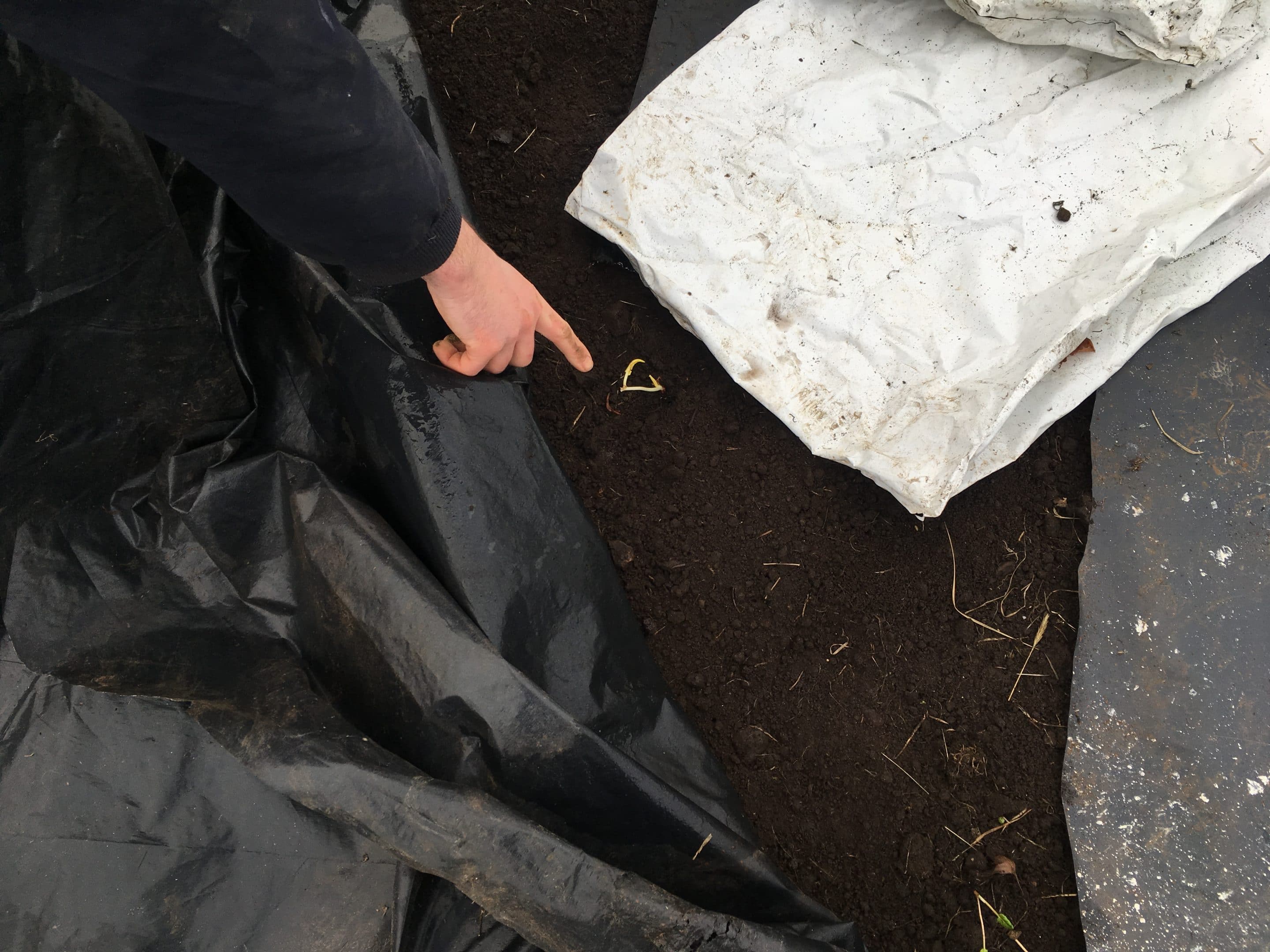
Once we’d done that we mulched this half of the tunnel with some very rich, rotten goat manure. Ideally we’d have liked to have left it to rot for longer, and hopefully next year it will be as we have plans for a midden in february, where we can leave the manure to rot down further! Instead for now we’ll leave the door open for the bantams to get in and turn through the manure, and hopefully this will help it decompose further before we come to plant the tomatoes.
The idea with the no dig gardening is that you end up with a thick, friable layer of rich humus on the surface of the soil. This is easy to keep weed free by mulching with compost or manure (which smothers the weeds) or light raking and hoeing, which will kill weeds that sprout. So long as we’re quick about pulling out plants before they go to seed, we should slowly over a few years reduce the weeds in the tunnel. Frequent mulching/cutting of perennials should weaken them significantly to kill them off over a period of years. Any annuals should be killed off by simply hoeing the newly sprouted seeds when they’re young. It’s a journey of discovery for ourselves, but we’ll keep you posted!
Well, that’s about it for January. We had hoped to get some building work done in the goat sheds, ready for a very special arrival in february, but as always with building work, the actual start date has been pushed back a bit!
So we’ll leave you till then with one of our superb winter sunrises over knocklayde.
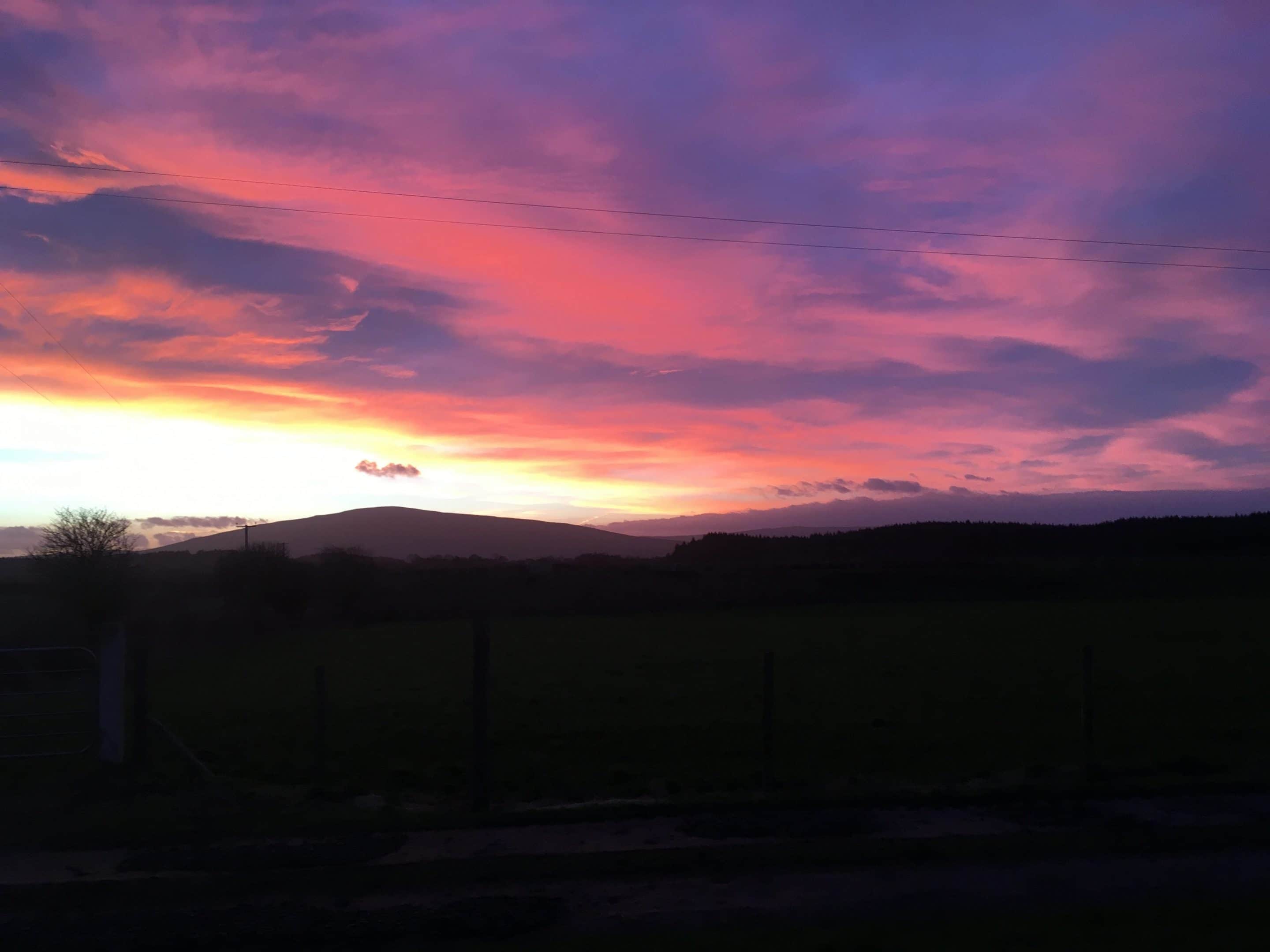
| Cookie | Duration | Description |
|---|---|---|
| cookielawinfo-checkbox-analytics | 11 months | This cookie is set by GDPR Cookie Consent plugin. The cookie is used to store the user consent for the cookies in the category "Analytics". |
| cookielawinfo-checkbox-functional | 11 months | The cookie is set by GDPR cookie consent to record the user consent for the cookies in the category "Functional". |
| cookielawinfo-checkbox-necessary | 11 months | This cookie is set by GDPR Cookie Consent plugin. The cookies is used to store the user consent for the cookies in the category "Necessary". |
| cookielawinfo-checkbox-others | 11 months | This cookie is set by GDPR Cookie Consent plugin. The cookie is used to store the user consent for the cookies in the category "Other. |
| cookielawinfo-checkbox-performance | 11 months | This cookie is set by GDPR Cookie Consent plugin. The cookie is used to store the user consent for the cookies in the category "Performance". |
| viewed_cookie_policy | 11 months | The cookie is set by the GDPR Cookie Consent plugin and is used to store whether or not user has consented to the use of cookies. It does not store any personal data. |